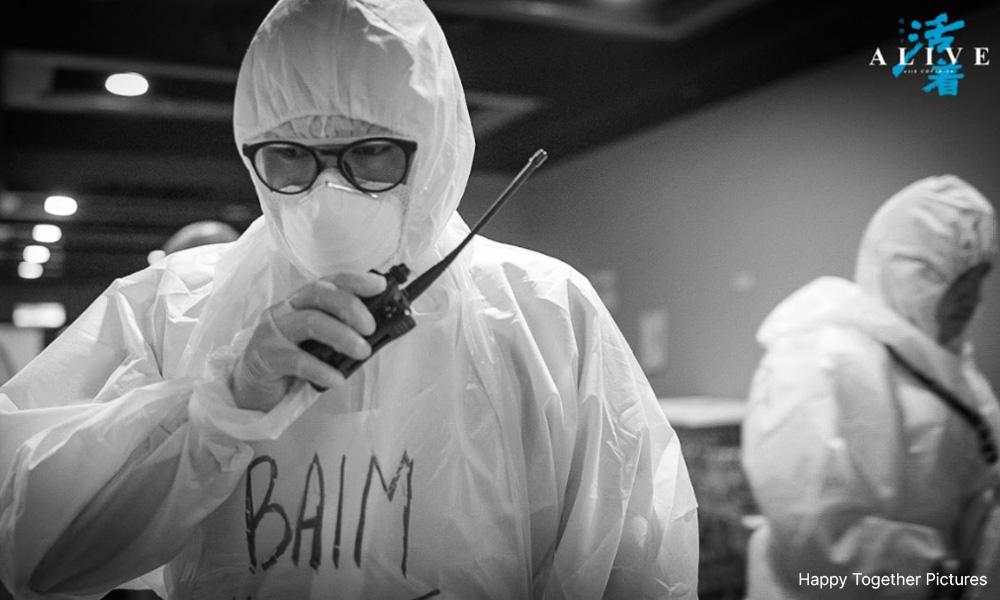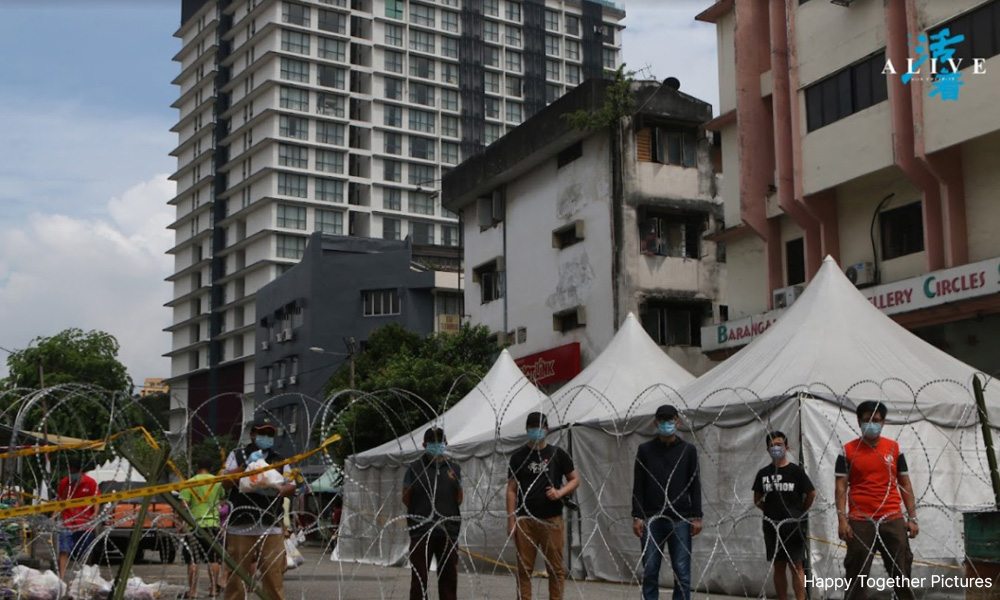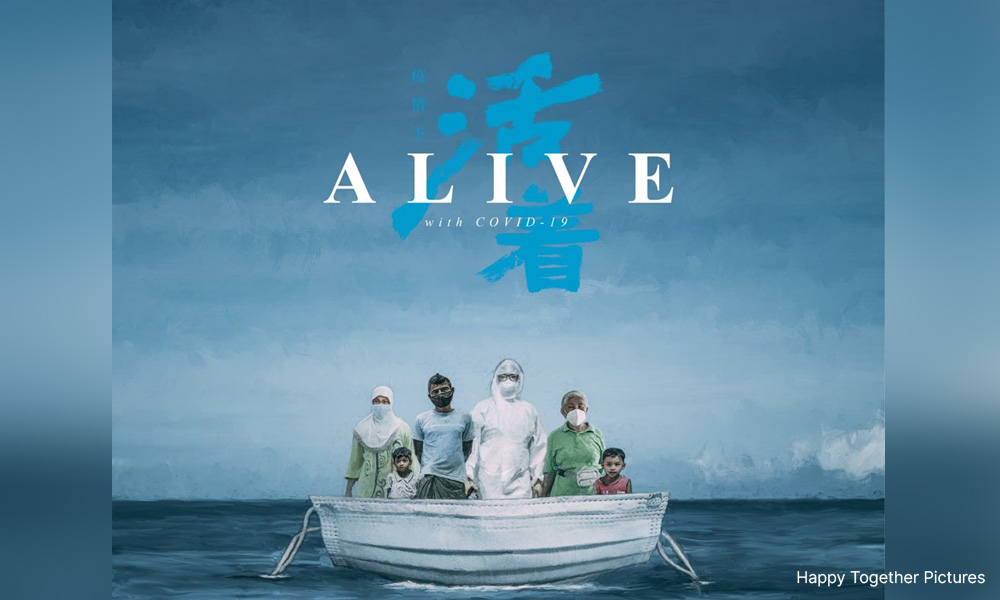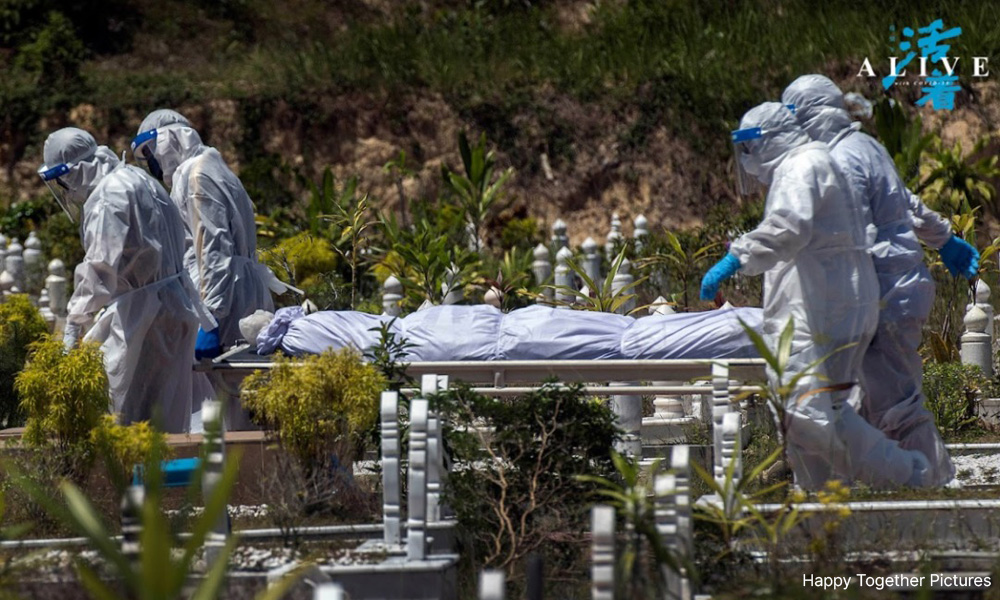Everyone has their own story about how they coped with the Covid-19 pandemic. It was a question of survival for some who, even before the pandemic, could barely get by.
That is why ‘Alive with Covid-19’ is a very special documentary. Produced by Happy Together Pictures Sdn Bhd together with Humanitarian Care Malaysia Berhad (MyCare) and Chinese Film Association Of Malaysia (CFAM) ‘Alive with Covid-19’ shines a light on Malaysians who struggle through the pandemic.
The documentary shares the views of frontliners and their families, Covid-19 survivors, humanitarian activists, migrant workers and refugees
The director of this moving documentary is Dennis Lai who is also the president of CFAM.
Lai is best known for his work on ‘Ice Kacang Puppy Love’ and ‘King of Mahjong’.

In an interview with Malaysiakini, Lai said that shooting for the documentary began right after the first lockdown which started in March 2020.
“I met Teo Ann Siang from MyCare and they were given the freedom to move around at that time because they were delivering food to poor people. I did know what I wanted to do but I knew that this moment was special and unusual, and we needed to do something.
“I joined him in delivering food to poor people. That is when I decided to record what we saw. We did not know what to do with the recordings but decided to carry on recording anyway. At the end of 2020, we found a sponsor (7days Croissant) and decided to start this project,” explained Lai.
This continued even during the second lockdown, which started in June 2021.
“The material that we got was mostly from the medical teams and poor people living in flats in Kuala Lumpur. We also went to construction sites and met migrant workers and Rohingya refugees,” Lai said.
“We did not offer our opinions in the documentary, we just let our subjects talk. We also have footage of the environment they are living in and their daily lives.”

Lai added that some of the people only spoke to the crew because MyCare was delivering their food.
Lacking time and money
Other than Lai, there were only three others on the crew.
“Teo is the one who took care of us and essentially helped us get into places. He will then time us, saying we only had 10 minutes or three minutes.”
In total, the crew had about 10 days of shooting stretched over one-and=a-half years. Despite the time constraints and severe limitations, they managed to get enough footage - including some from friends and news teams - for a documentary.
The timing of the release now seems to coincide with another impending Covid-19 wave.
Lai said the documentary took so long to release because of the pandemic and lockdown, as well as budget woes.
“We decided to set a cutoff date in November 2021. If there is no cut-off date, we would have never finished.
“We also decided to focus the documentary on how the poor cope during the pandemic.
“We found some people who were fine before the pandemic but struggled during the pandemic. Then you have groups like the Rohingya and other refugees - whose problems were already bad before the pandemic and during the pandemic, it did not get better.”
‘Not easy to stay alive’
Lai said he wanted to focus on the refugees because they are living in the same city.
During one of the shoots, he and his team had entered a sparsely furnished flat (only a table and broken chair) where some Rohingyas were staying and noted how if it rains, water would come through a window that was high on the wall near the ceiling.

“It is hard to imagine that people are living like this in Kuala Lumpur. We did not want to just focus on the pandemic. We wanted to focus on these people who badly need help,” Lai said.
Their initial working title was ‘Pandemic in Malaysia’.
“After we did the editing, we decided to go with ‘Alive with Covid-19’ instead. It is not easy to stay alive. That was how we felt,” Lai explained.
The National Film Development Corporation had initially barred any shooting for any productions during the lockdowns. When the ban was lifted in the final quarter of last year, all production houses resumed their work immediately.
Lai said it was hard to secure an editing studio or the manpower to resume work - and it took them six months to get everything ready.
Because of monetary issues, Lai said, they also had to wait for a production house to help sponsor them and that they needed to wait until the company finished its work first.
Snag at the gatekeeper
They finished work in May and sent it to the Malaysian Film Censorship Board, but what would normally take two to three weeks for approval took seven weeks.
“They were very careful. First, they saw the title and that it was a documentary. We did not blame the government for anything.”
“This was because there was a lot of on-the-ground sentiment during the pandemic that the government was not working hard enough.
“They called us for a meeting. They were friendly, they did their work. They wanted to understand us and what MyCare was doing.
“They were also wondering who was backing the documentary,” he said.

Lai said the board did not give the film a wide release and raised two issues in which they had to mute some of what was said.
The invitation-only premiere was yesterday, but the film will be screened at GSC Mid Valley once a day for five days beginning July 20.
Lai has plans to hold private screenings and also at institutes of higher learning and schools. There might even be free shows for the public.
He had also approached some local stations, which were initially keen but backed off after facing censorship issues. The crew is now looking into over-the-top media platforms.
“Our purpose was to make this documentary and I wanted to record the special moments. From what I have seen, I felt I need to show everyone, especially Malaysians, about all those people around us who were never talked to or nobody tried to understand their situations.
“It is not a profitable project. (But) We hope people will notice the poor who live around us,” Lai added. - Mkini




No comments:
Post a Comment
Note: Only a member of this blog may post a comment.